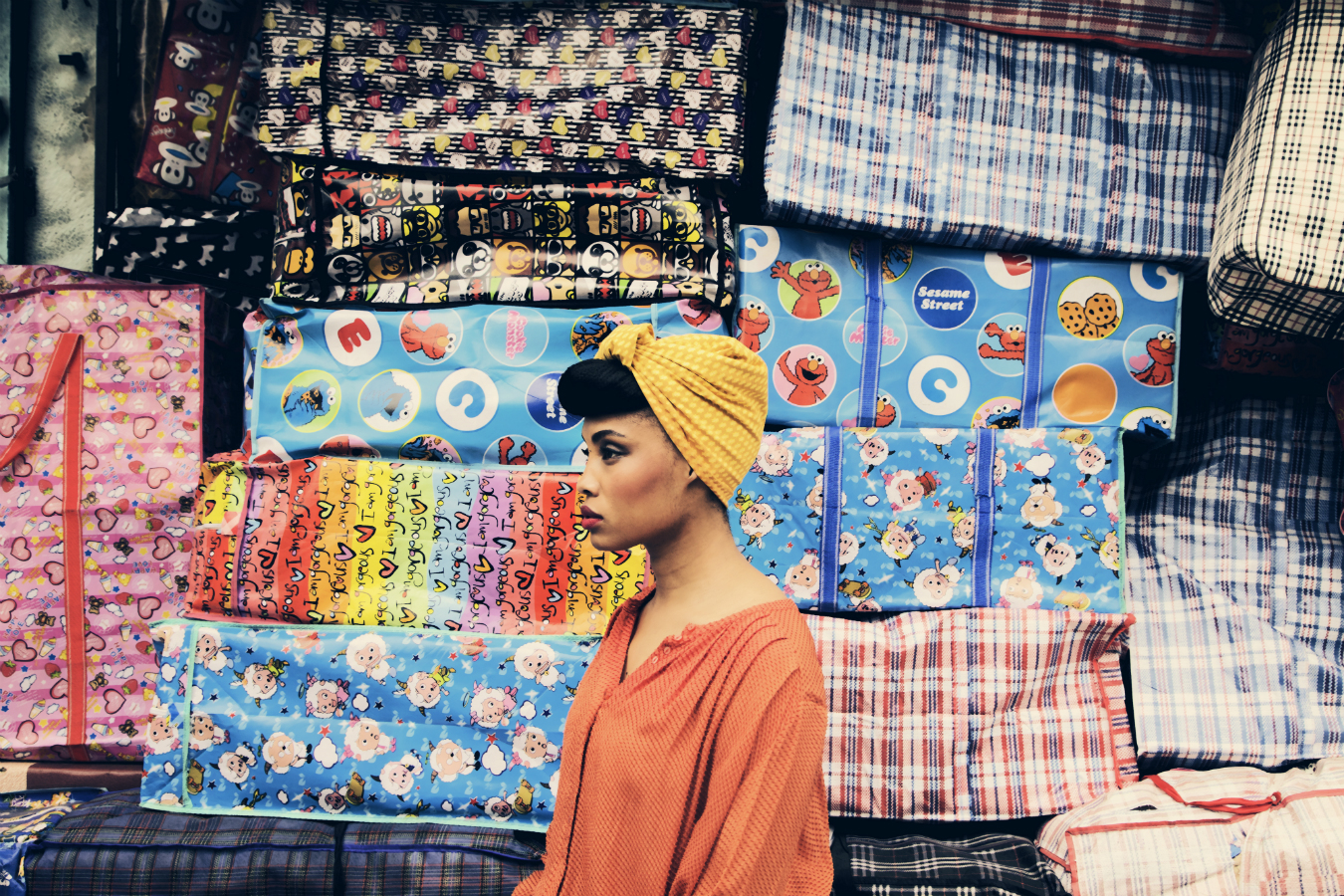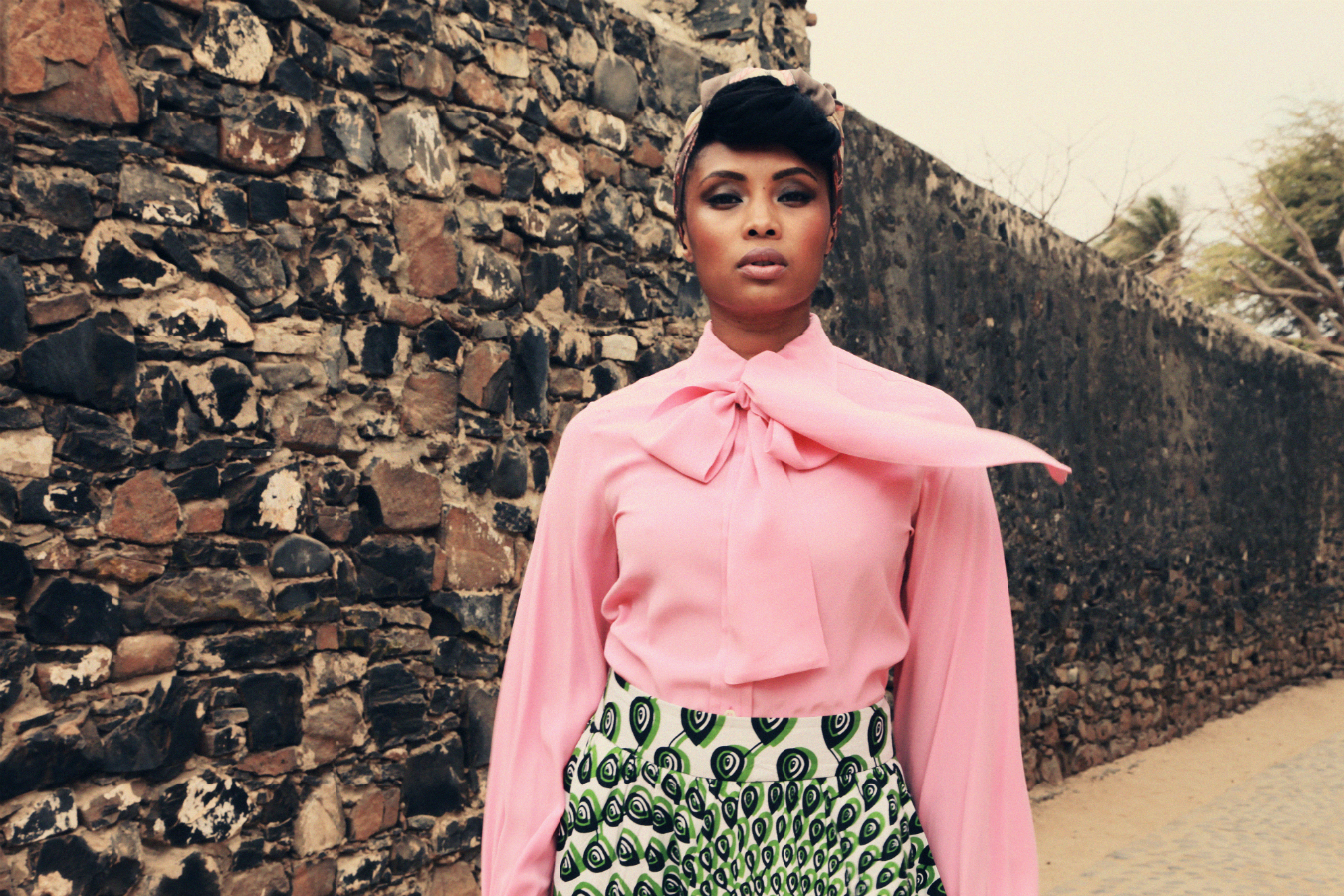At the end of 2016, French singer/songwriter Imany (Nadia Mladjao) came to Toronto for an exclusive and intimate performance at the Soho House. Her hits “Don’t Be So Shy” (remixed by Russian DJs Filatov & Karas), “You Will Never Know,” and “The Bad, The Good and The Crazy” are incredibly popular in Europe and have gone platinum multiple times in a number of countries. Now it is time for her to conquer North America. Imany has a deep and soft velvety voice, her lyrics are sensual and touching, and her personal style is distinct. A few hours before flying back to Paris, she sat down to chat at the Shangri-La Hotel.
This is your first time in Canada. What was your first impression of Toronto? Was it like the “6ix” that Drake made famous?
I don’t listen to Drake so much, so I guess I didn’t have that reference. I knew of a Toronto basketball team, but I never had any preconceived ideas. I must say, I didn’t think it would look so American. For some reason I thought that Canada would be completely different than America. When I came to Toronto, and even Montreal, actually, I felt like I was in New York in some areas. I think that was the biggest surprise for me.
How did you start in the music industry?
I started to write songs and sing when I lived in New York. It was almost 10 years ago. I was a model first, but it wasn’t working out the way it was supposed to. Plus I was very bored, I never liked that job. So I decided to go after my dream, and after eight years in New York I got really tired, I got homesick. I also realized that in New York, I don’t know if it’s an American thing, but at least in New York, they wanted to put artists in a box: “You are a black singer, you should be that type of singer; you are an Asian singer, you should be that type of singer.” And I didn’t like that, and I didn’t know what I wanted to do back then, because it was still very new. But I knew that I didn’t want to be in that R&B box, it just wasn’t me. And the door was, you know, very heavy to open. So I went back to France. I didn’t know anyone there anymore, because I left it when I was 19. I came back when I was 27, so a long time had passed.
But I did it the old-school way: I went to all the bars and played. At first it was in front of five people; all of them were my sisters and brothers. And from that point I’ve built a fan base, and I got signed by an independent label a year after I moved back to France. The time flew really fast.
Can you share your experience working as a model?
I started when I was 16 or 17 in Paris. First I was an haute couture model, but then at 19 I went to New York and it was another kind of business. You can make a lot more money, because there is a lot more opportunity, but there are a lot more girls. So the competition is pretty fierce. You have a lot of castings, a lot of “no” for not a lot of “yes”. In the beginning it was fine, I was making good money.
But then September 11 happened, and the market crashed. All the top models, they kept the jobs, but for girls in between, who I like to call “middle-class models”, it was hard. We didn’t have many jobs anymore.
You have a distinct look and fashion sense. What are the influences in your personal style?
I like these wax African prints. Anything you do with it, it’s a statement, it’s powerful. [What I am wearing now] is a regular bomber, but with wax it is a statement. It’s from the brand Xuly.Bët. They are so talented.
I like to push young brands. Xuly.Bët are not young, because they were superstars in the ‘90s in France, and even in New York. Then they had a financial setback and now they are starting over. I like the whole Phoenix story about it. I like to be comfortable, simple, and not like anybody else.
Did you have a chance to notice young Canadian designers?
Not yet. But I wish I had the time. When I have time in a new country, I get to meet with young designers. They are bold, they come to me, give me their lookbooks or pieces. If I like it, I will wear it. I think we should push young entrepreneurs and young ideas, because they are not too corrupted by the system yet.
You performed a cover of Whitney Houston’s “I Wanna Dance with Somebody” at the Soho House. Who were your major musical influences?
Growing up, Tracy Champman. When I was a kid, I already had this [deep] voice and it was a huge insecurity. And I thought I was the only kid with a weird voice like that. From a very young age, singing has always made me happy. But I thought going to the moon would be more probable than singing with a voice like mine. So when I saw Tracy Champan on TV, I thought it was a boy, but my dad told me “No, it’s a woman,” and I realized that you can have a deep, manly voice and sing. She was my eye-opener. So I love her. Also Bob Dylan, and I am a huge fan of Nirvana. Whitney Houston was a big influence. I wanted to be as beautiful as she was. She was a great part of my insecurity, because the way she was singing, I thought she was so perfect and so different from who I was, that I’d never be able to be like Whitney Houston, and I was right. I was so sad when she died, I think I cried, actually. Any hip hop from the ‘80s to the beginning of the 2000s kind of shaped who I was. I was very militant, very activist, and hip hop talked to that side of me.
You new album is coming out in the spring of 2017. What should we expect from it?
Not a dance album. It is a lot more pop-folk music. It’s my voice, though. If you like “Don’t Be So Shy”—the voice and the melody—you might like the album. It’s my voice, my songs. I write the music and the lyrics. It’s organic, as I like to call it. I try to be as authentic as I can be. I use my heart. I don’t see myself as a perfect singer with a perfect voice, like Céline Dion, and I am not trying to be one. I am very imperfect, but I go with my imperfections and I feel it talks to other people and their imperfections. This is where we meet.
This interview has been edited and condensed.
Read more music stories.










